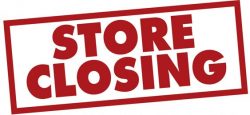There Is A Special Place in Hell For ‘Takers’: A Depressing Holiday Experience
January 3, 2019 ~ Written by: W.B. “Bud” Kirchner
Approx. Read Time: 9 Minutes
What We Do & Why We Do It
“Right is right even if no one is doing it; wrong is wrong even if everyone is doing it.” – Augustine of Hippo
I want to start this article with a disclosure on a particular ‘bias’.
Kirchner Group was founded 35-years ago on what was previously an ‘unusual commitment’ to the philosophy of a value-based business, including what we call ‘earning and returning’. This approach has been documented in previous articles and during a PBS interview, which was chosen as ‘Interview of the Year’.
To put it another way, our entire team has committed our careers to creating real value – not using our talents to create the perception of value or short-term versions of value.
To sum up my disclosure, I am a firm believer in creating value the old-fashioned way (heavy lifting/long term view). In my opinion, while ‘financial engineering’ can be a tool, it is a dangerous one and one that is used far too often.
With this background (disclosure) in place, I continue with the story of how the Grinch stole my Christmas.
The Conversation from Hell
“They who are of the opinion that Money will do everything, may very well be suspected to do everything for Money”. – George Savile, Complete Works, 1912
For sure a trip to the mall is not a typical (arguably much more than atypical) event for me. However, out of the country visitors/holiday season – all conspired against me.
The story continues as follows:
Soon after I sat down on a public bench, I was joined by a gentleman described as, while past his prime, still vigorous and (as the story unfolds) passionate.
As he sat down, we were both facing a Sears (yes, the one that was once the world’s largest retailer and has been in existence for over 100 years) store with an enormous ‘store closing’ sign. After a few expletives about the events leading up to this closing, he shared with me that he had been a 30-year employee. He then fleshed out the story by telling me there was really no other jobs for someone in his situation. He had been paid minimum wage, so for all practical purposes, had no savings etc. etc. He then wrapped up by telling me he was not alone. In fact, he had several friends in the same situation, amazingly not all ‘because’ of Sears, but also Toys R Us and Payless.
One could not help but be struck by the tragedy of such a story in the midst of a season of celebration. My mind also went from him to several of his friends to thousands of individuals in the same quandary.
As he told the story, I was struck by how he had a clear understanding (apparently, he and his friends in similar circumstances had compared notes) of some basic facts – in particular (1) this did not have to be, (2) virtually no one in the ‘system’ cared that he had been a victim, (3) they had done their best to create value, not just ‘do a job’ and (4) those with much less ‘need’ were doing just fine.
After having read (and written) many articles on this theme, I was struck by how impactful it was to hear a very personalized description.
I also thought about a piece that recently appeared in the Guardian (#4):
Patrick said: “I am a mother who has four biological children and one stepson, and my income is all we have. When you take away our only income, you leave us with nothing – and we don’t deserve nothing. Mentally and physically it drags on you. It’s like saying you’re not good enough. And we’re all good enough.”
As I listened to this gentleman’s story, I couldn’t help but think of the book Makers and Takers: “The Rise of Finance and the Fall of American Business” by Rana Foroohar, which I feature in an earlier article (Our Wiring Isn’t Getting Any Better?!?!) as well as the book The Value of Everything: Making and Taking in the Global Economy by Mariana Mazzucato, which was the focus of a subsequent article (Makers & Takers: Why Can’t We Get This Right).
What Went Wrong?
“Waste no more time arguing about what a good man should be. Be one.” – Marcus Aurelius
There are a couple of Sears specific (but not unique) egregious aspects, which according to the Guardian (#4) include:
- “Four weeks into receiving severance pay, a bankruptcy court stopped the rest of the payments.”
- “In the meantime, Sears executives have petitioned to receive up to $25m in bonuses.”
- “Lampert’s oversight of Sears Holdings since the merger with Kmart has been criticized as the reason for Sears’ bankruptcy and massive store closures.”
- “As Sears’ CEO, chairman, banker, landlord and transaction partner, Lampert has managed to transfer many of Sears’ assets to himself and sell off others.”
This all falls into the context of my earlier reference, so I repeat my quotes from Rana Foroohar (#1):
- Rather than funding the new ideas and projects that create jobs and raise wages, finance has shifted its attention to securitizing existing assets (like homes, stocks, bonds and such), turning them into tradeable products that can be sliced and diced and sold as many times as possible.
- How did finance, a sector that makes up 7 percent of the economy and creates only 4 percent of all jobs, come to generate almost a third of all corporate profits in America?
- Virtual enterprises prosper while real ones, with real workers, struggle. Innovation is falling to cash management, long-term to short-term tricks. Risk in the financial system continues to rise, even as risk capital to real businesses declines.
- As a sign we have not figured it out: Every recovery of the post-World War II period has been longer and weaker than before.
- Finance would rather invest in areas like real estate and construction which are far less productive but offer quicker more reliable short-term gains (as well as collateral that can be sold in a crisis or secure ties in boomed times).
- The move from “retain and reinvest” corporate model “to a down size in distribution” one is in large part responsible for a national economy characterized by economic inequality employment instability and diminished innovative capability.
- In 2030, is when the largest demographic group in US history “the baby boomers” will have nearly depleted the social security trust fund. It is also when the older generation X’s will begin to move out of the work and into retirement.
As I close my eyes and reflect on the forlorn look on my bench mate’s face – I similarly reflect on a headline I just read in Newsweek:
Many (most) of the readers of these articles influence businesses, which means by definition they control lives so these are important issues to have an opinion on so I leave you with this thought:
“Income equality and the pace of technology change are leading to a populist backlash featuring opposition to science, distrust of our governing institutes, and fear of the future, making it ever more difficult to solve the problems we have created.” (What’s the Future and Why It’s up To Us – Tim O’Reilly)
Postscript
Out of some sense of ‘journalistic integrity’, I have added this ‘late breaking news’. With only hours left on the clock, the chairman made a bid for the company. This is, of course, the controlling shareholder and chairman through all the issues described above. It remains to be seen if the bid will be accepted, but even if it is, I believe it is safe to assume it will do nothing for many people such as my bench mate. Perhaps, a Band-Aid on a sucking chest wound that didn’t need to happen?
Bibliography
- Rana Foroohar – Makers and Takers: “The Rise of Finance and the Fall of American Business”
- Mariana Mazzucato – The Value of Everything: Making and Taking in the Global Economy
- Tim O’Reilly – What’s the Future and Why It’s up To Us
- Michael Sainato – Laid-off Sears workers left with nothing – and they say wealthy bosses are to blame
- Andrew Whalen – Sears Executives May Get $25 Million in Bonuses as Laid-off Employees Denied Severance After Bankruptcy
Relevant Business Brain Model articles:
- Is There Something Wrong with Our Wiring?
- Positioning Between the Poles: Is right really right and wrong really wrong?
- Financialization As A Symptom
- Human Nature as A Cause
- Makers & Takers: Why Can’t We Get This Right?
- Two Steps Forward – One Step Back
- Our Wiring Isn’t Getting Any Better?!?!
About the Author: W.B. “Bud” Kirchner is a serial entrepreneur and philanthropist with more than 50 years of business success. He is not a scientist or an academic but he does have a diversified exposure to neuroscience, psychology and related cognitive sciences. Generally speaking, the ideas he expresses here are business-angled expansions of other people’s ideas, so when possible, he will link to the original reference.


